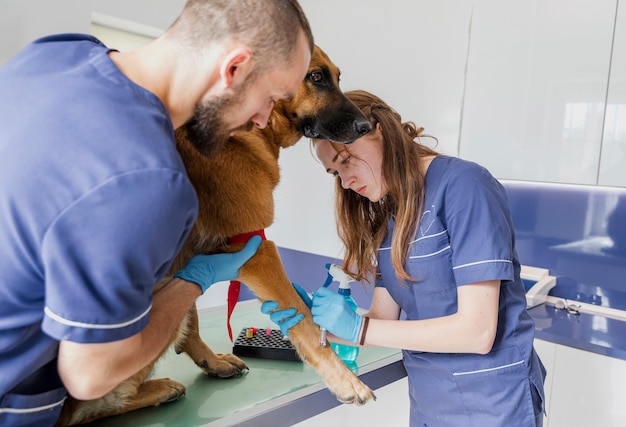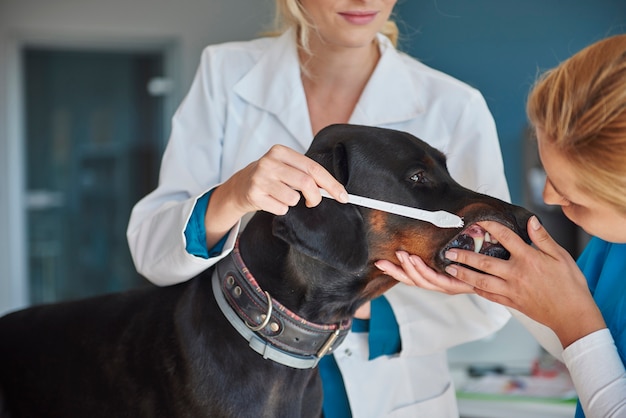Understanding Pet Dental Surgery: What to Expect and Recovery Tips


Understanding Pet Dental Surgery: What to Expect and Recovery Tips
As a loving pet owner, you want your dog or cat to stay happy, healthy, and pain-free for as long as possible. One critical but often overlooked aspect of your pet’s well-being is their oral health. If your veterinarian has recommended pet dental surgery, you may be feeling anxious, uncertain, or simply curious about what the procedure entails and how you can best support your companion’s recovery. At Symbios Chatam, we understand these concerns and provide advanced, compassionate pet dental care in Chatham, NJ, designed to help pets and their owners feel confident and informed every step of the way. In this blog, we will walk you through the signs your pet may need dental surgery, what causes dental problems, what to expect from the procedure itself, and how to care for your pet at home afterward.
If you are searching for comprehensive “pet dental surgery in Chatham” or want to know what to expect from professional dental care, you have come to the right place. Our team of veterinarians at Symbios Chatam, located at 588 Main Street, Chatham, NJ 07928, is dedicated to providing both preventive and surgical dental solutions tailored to your pet’s needs. To learn more about the range of procedures we offer, including advanced dental surgery for pets, keep reading.
Recognizing When Your Pet Might Need Dental Surgery
Understanding when your pet may require dental surgery is the first step in ensuring their long-term health and comfort. Key symptoms that may indicate a dental issue include persistent bad breath, difficulty eating or chewing, excessive drooling, pawing at the mouth, or visible swelling around the face or jaw. Other warning signs are loose or missing teeth, red or bleeding gums, dropping food from the mouth, or even reluctance to play with chew toys. Some pets may become withdrawn or irritable as a result of chronic oral pain, so changes in behavior can also be an important clue.
It is not uncommon for pet owners to overlook subtle symptoms, especially if their pet is stoic or hides discomfort. In many cases, dental disease develops gradually, and by the time symptoms are obvious, the problem may be quite advanced. Early detection is key, so regular wellness visits and professional pet dental cleanings at your local veterinary clinic are essential in Chatham and surrounding communities.
Why Do Pets Need Dental Surgery? Understanding Causes and Risk Factors
Dental problems in pets can arise from a variety of causes. The most common is periodontal disease, which is a progressive inflammation and infection of the gums and supporting structures of the teeth. This condition begins with plaque buildup, which hardens into tartar and leads to gum irritation, infection, and, eventually, tooth loss if untreated. Other contributing factors include fractured teeth from chewing on hard objects, retained baby teeth, oral injuries, or genetic predisposition in certain breeds.
Cats and dogs can both experience unique dental challenges. For example, cats are sometimes affected by resorptive lesions, which cause painful deterioration of the tooth structure, while small-breed dogs are particularly prone to advanced periodontal disease. Additionally, pets with misaligned bites or crowded teeth may be at higher risk, as these conditions make it easier for debris and bacteria to accumulate. Chronic conditions such as diabetes can also impact oral health, making comprehensive pet dental care in Chatham, NJ, even more critical for these patients.
What to Expect from Pet Dental Surgery at Symbios Chatam
If your veterinarian has recommended dental surgery, you can expect a detailed and compassionate approach at Symbios Chatam. The process begins with a thorough pre-surgical examination and bloodwork to ensure your pet is healthy enough for anesthesia and to identify any underlying medical concerns. During the procedure, your pet will be placed under general anesthesia for their safety and comfort. Our veterinary professionals use advanced monitoring equipment and techniques to minimize risk and keep your pet stable throughout the surgery.
The type of dental surgery performed will depend on your pet's specific needs. Treatment options can include tooth extractions for severely damaged or infected teeth, repair of fractured teeth, removal of oral tumors, or treatment for abscesses. For any case where the full extent of dental disease is not visible to the naked eye, our team utilizes dental radiography to assess the roots and jawbone. This ensures that all diseased tissue is addressed and reduces the risk of future complications.
Following surgery, your pet will recover in a warm and quiet environment under close supervision. Pain management is a top priority, and your veterinarian will develop a tailored plan using safe and effective medications. Many pets are able to return home the same day, but those with more complex procedures may require a longer stay for observation.
The Importance of Professional Dental Extractions and Repairs
When a tooth is too damaged to save, extraction is often the best course of action to prevent pain and infection. Our veterinary team is skilled in dental extraction and dental repair, ensuring your pet receives precise and gentle treatment. This attention to detail helps preserve as much healthy tissue as possible and supports a smoother recovery. By addressing dental issues promptly, you can significantly improve your pet’s quality of life and reduce the risk of future systemic health problems.
At-Home Care and Recovery Tips After Pet Dental Surgery
After your pet returns home from dental surgery, attentive aftercare is essential for a smooth and speedy recovery. Your veterinarian will provide detailed instructions tailored to your pet’s procedure, but some general guidelines apply to most cases. For the first few days, it is common for pets to feel sleepy or less energetic as the effects of anesthesia wear off. You may notice some mild swelling or minor bleeding at the surgery site, which typically resolves quickly.
Feeding your pet soft food is usually recommended for at least a week following dental extractions or repairs. Offer small, frequent meals, and avoid giving hard treats or chew toys until your veterinarian gives the all-clear. Monitor your pet for any signs of pain, such as reluctance to eat, vocalization, or pawing at the mouth. If your pet was prescribed medications, administer them exactly as directed and complete the full course, even if your pet seems to be feeling better.
Keeping your pet’s mouth clean during recovery is important, but avoid brushing the surgical area until advised by your veterinarian. Instead, focus on providing a calm, stress-free environment and limiting vigorous activity, especially if your pet is still drowsy or unsteady on their feet. If you notice excessive swelling, persistent bleeding, loss of appetite for more than 24 hours, or any signs of infection such as foul odor or discharge, contact your veterinarian right away.
Preventive Dental Care: Protecting Your Pet’s Smile in Chatham, NJ
The best way to reduce the need for future dental surgeries is through consistent, preventive care. Professional pet dental cleanings in Chatham, NJ, remove tartar and plaque that cannot be addressed with home brushing alone. At Symbios Chatam, our veterinary professionals recommend regular dental wellness exams as part of your pet’s overall health plan. Depending on your pet’s breed, age, and oral health status, dental cleanings may be recommended annually or more frequently.
At home, daily or regular tooth brushing is one of the most effective ways to maintain your pet’s oral health. Use a pet-specific toothbrush and toothpaste, and start slowly if your pet is not used to having their mouth handled. Dental chews, water additives, and special diets can also support oral hygiene, but they should not replace professional care. Your veterinarian can help you choose the products and routines best suited to your pet’s needs and lifestyle.
For those searching for “pet dental care Chatham NJ” or “dental vet near me,” Symbios Chatam combines advanced technology with a personalized approach, ensuring each patient receives the highest standard of care.
When Should You Call Your Veterinarian About Your Pet’s Dental Health?
It can be difficult to know when dental problems warrant immediate veterinary attention. You should schedule an appointment if your pet displays symptoms such as persistent bad breath, difficulty eating, bleeding from the mouth, or visible swelling. Any sudden changes in behavior, such as hiding or irritability, also merit a professional evaluation. Dental issues can progress quickly, so early intervention is the best way to prevent more serious complications.
If your pet has already undergone dental surgery and you notice signs like excessive pain, swelling, or discharge, do not wait to seek advice. Timely communication with your veterinary team ensures your pet’s recovery stays on track and reduces the risk of setbacks. At Symbios Chatam, we are always here to answer your questions and provide guidance for pet dental care in Chatham, NJ, whether you are a new or returning client.
Trust Symbios Chatam for Pet Dental Surgery and Recovery in Chatham
Your pet’s comfort, health, and happiness are at the heart of everything we do at Symbios Chatam. Our team of veterinarians delivers personalized, advanced dental care for pets in Chatham and surrounding communities, guiding you through every step from diagnosis to recovery. If you are concerned about your pet’s oral health or have been searching for a “vet near me” who truly cares, we invite you to experience the difference that our concierge-style approach can offer.
To schedule an appointment or learn more about our pet dental surgery services in Chatham, NJ, contact Symbios Chatam at (973) 381-8475 or visit our welcoming clinic at 588 Main Street, Chatham, NJ 07928. Discover how our advanced dental surgery solutions for pets and compassionate recovery support can help your companion thrive. Let us be your partner in lifelong pet dental care Chatham NJ, and your trusted choice for “quality vet near me” services.
This blog post is for informational purposes only and does not replace professional veterinary advice. If your pet is experiencing pain, illness, or behavioral changes, please consult with your veterinarian promptly.


















